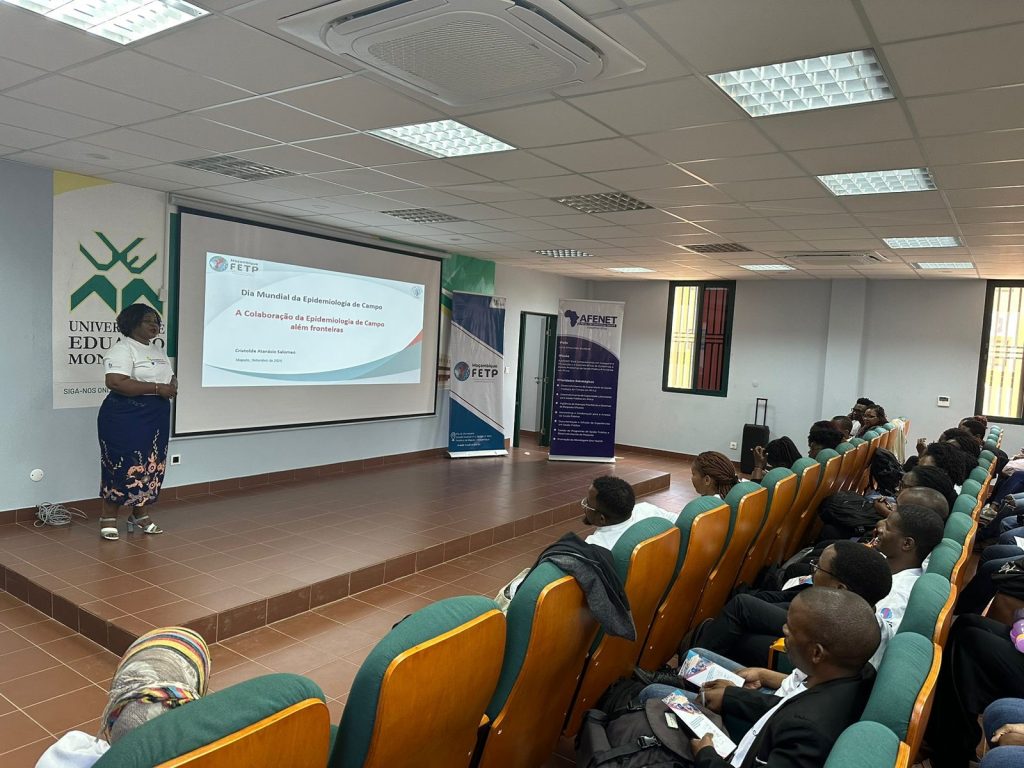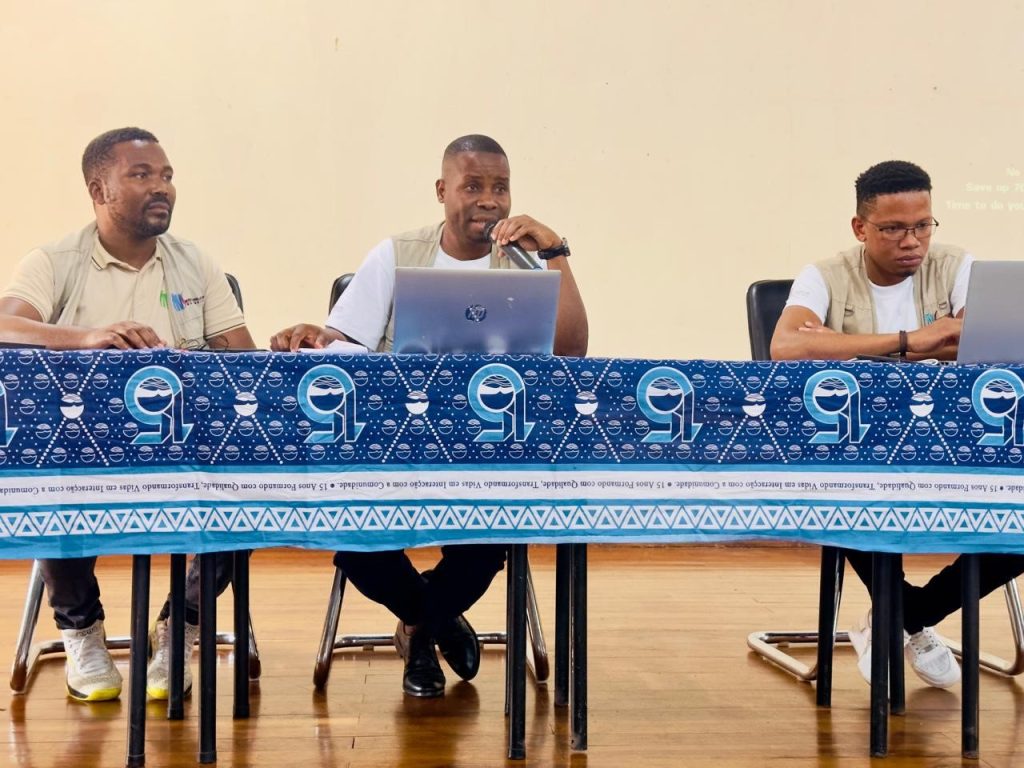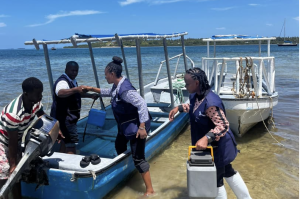How Mozambique FETP celebrated World Field Epidemiology Day 2024
-
by
AFENET


In celebration of World Field Epidemiology Day, lectures were held at Eduardo Mondlane University (UEM) in Maputo Province and Lúrio University (UniLúrio) in Nampula Province under the theme “Collaboration is Essential for Field Epidemiology.” The event highlighted the importance of partnerships in tackling public health threats and brought together an array of participants, including representatives from both universities, the National Health Institute Provincial Delegation of Nampula, students, professors, Mozambique Field Epidemiology Training Program (FETP) residents, alumni, and the FETP coordination team.
The opening ceremony in Maputo was led by UEM representatives, while in Nampula, it was officiated by the National Institute of Health (INS) Delegate. Both speakers stressed the crucial role of field epidemiology in managing natural disasters and responding to public health emergencies. They pointed to Mozambique’s recent challenges cyclones, disease outbreaks, and the COVID-19 pandemic as prime examples of why field epidemiologists are essential for safeguarding public health.
During the lecture sessions, the history and structure of the Mozambique Field Epidemiology Training Program (FETP) were presented. The program’s accreditation process and its ongoing quality assurance initiatives were discussed, alongside the challenges it has faced in responding to public health emergencies. Central to the discussions was the theme of collaboration, emphasizing that no single sector can adequately respond to public health threats without the input and support of others.
One of the highlights of the event was an exhibition of field experiences shared by FETP residents, graduates, and professionals. These presentations showcased the vital role FETP plays in Mozambique’s public health system, including during:
- Cyclone Idai (Sofala Province, 2019) and Cyclone Kenneth (Cabo Delgado Province, 2019) – where FETP was instrumental in emergency response and outbreak surveillance.
- COVID-19 preparedness and response efforts in 2020, particularly during the armed conflict in Cabo Delgado.
- Hemorrhagic conjunctivitis outbreak in Nampula Province (2024) – where rapid field epidemiology interventions were critical in outbreak control.
- Cross-border collaboration on Yellow Fever control in Angola (2015) and investigations of cholera cases in a Zimbabwean border district (2019).
- Mass gathering surveillance during the Pope’s visit in 2019, an event that brought together large crowds and required detailed public health planning.
These case studies demonstrated how collaborative efforts between FETP, national health authorities, and international partners strengthened Mozambique’s capacity to respond to public health crises.
The event sparked engaging discussions, with participants raising questions about the challenges field epidemiologists face during health emergencies. One of the main themes of the discussion was the need for stronger intersectoral collaboration to ensure more effective public health responses. Participants emphasized that in times of crisis, all sectors health, logistics, communication, and more must work in tandem to build more resilient public health systems.
The event concluded with a renewed commitment to fostering collaboration in field epidemiology and empowering the next generation of public health professionals to tackle future challenges.
World Field Epidemiology Day 2024 provided a valuable platform to celebrate the critical contributions of field epidemiologists and underscore the importance of collaboration in public health. As Mozambique continues to strengthen its capacity to respond to health emergencies, the Mozambique FETP remains a cornerstone of these efforts, driving innovation, preparedness, and resilience in the face of ever-evolving health threats.



